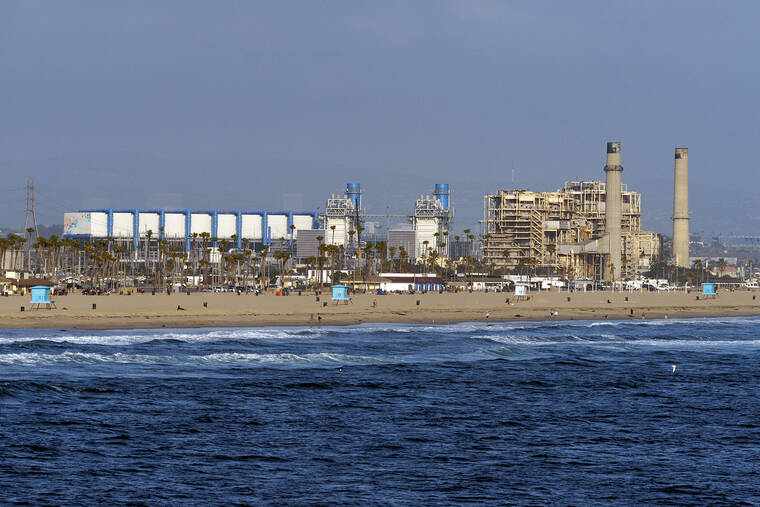California nixes plant, but says open to desalination
HUNTINGTON BEACH, Calif. — California officials have nixed a proposal for a $1.4 billion desalination plant but say they’re open to growing the state’s capacity to turn Pacific Ocean seawater into drinking water to buffer against persistent drought.
After an hours-long hearing, members of a state coastal panel on Thursday unanimously rejected a proposed desalination plant for Southern California over concerns the facility would kill marine life and drive up the cost of water.
ADVERTISING
The vote by the California Coastal Commission, which is tasked with protecting the state’s scenic shoreline, dealt a blow to the long-running proposal by Brookfield Infrastructure Partners-owned Poseidon Water.
The plan had the backing of Democratic Gov. Gavin Newsom in his push to combat drought conditions plaguing the state, which are expected to worsen with climate change. But commissioners weren’t convinced and said the plant would damage marine ecosystems and make water too pricey in an area of California that has other cheaper and more environmentally sound water sources including a renowned wastewater recycling program.
“Our decision today is not about desal generally on the California coast,” Commission Vice Chair Caryl Hart said during deliberations late Thursday.
“We don’t automatically say ‘We need oil, therefore we should approve every offshore oil proposal before us.’” Likewise, we need water; we need to be thoughtful,” she said. “We would not blindly approve offshore drilling, neither should we approve this desal project when it is clear that what is proposed is far more damaging and violates the laws that Californians broadly supported and support more than ever today.”
Newsom has declared desalination, which takes ocean water and removes salt and other elements to make it drinkable, a key tool to addressing drought.
The state already has other seawater desalination projects approved, including the country’s largest facility in nearby San Diego County, which was built by Poseidon.
Newsom didn’t comment on the panel’s reasoning but said seawater desalination, as well as brackish desalination, remain part of the state’s water strategies.
“It should be part for no other reason than this: Reliability, flexibility. This is a megadrought,” he told reporters on Friday.
The vote came after years of debate over whether to build the facility in Huntington Beach, which is southeast of Los Angeles and dubbed “Surf City USA” for its popular waves. While Poseidon built a similar plant to produce 50 million gallons of water a day in San Diego County, the plan for Orange County — which is less dependent on state and federal water supplies — has faced opposition from environmental groups and years-long delays.
Poseidon said in a statement that it was disappointed by the panel’s decision, and believes the project “would have created a sustainable, drought-tolerant source of water for Orange County.”
Commission staff opposed the project for various reasons, arguing the plant’s use of intake structures to draw in water from above, instead of beneath, the ocean floor would destroy tiny marine organisms that are the base of the food web in about 275 million gallons of seawater per day. These intake structures have long been used as a cooling mechanism in a nearby power plant and are being phased out due to the impact on marine life.
Commission staff also said the plant faced hazards from sea level rise in the low-lying area where it would be built, which could be cut off from surrounding areas by flooding.
“The evidence I heard today was that the harm associated with this project was perhaps so profound, and the inconsistency of the project was so complete in terms of our own Coastal Act and other policies, that it perhaps could not be mitigated, it could not be redeemed,” said Commissioner Sara Aminzadeh.
“We are not against desal. We are for the coast, and we are for environmental justice, and we are for coastal resilience in the face of sea level rise.”
Other concerns were how much the desalinated water would wind up costing the roughly 2.5 million residents of central and northern Orange County, and whether having a private company produce water would drive up prices. Desalinated water is currently more expensive than other sources, and the area has a local groundwater basin that meets 75% of its water demand and is in the process of being expanded.
California has spent most of the last 15 years in drought conditions. Its normal wet season that runs from late fall to the end of winter was especially dry this year and as a result 95% of the state is classified as in severe drought.


